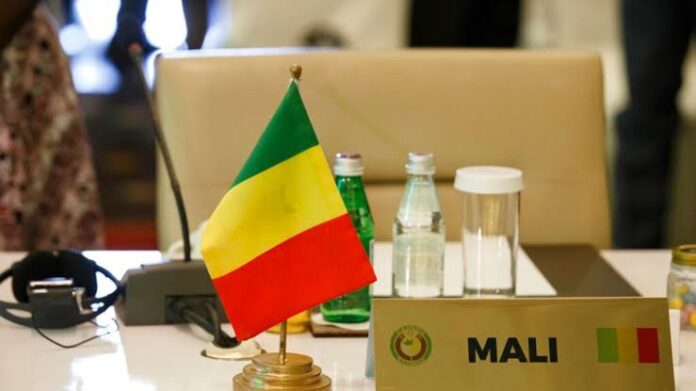West African leaders on Sunday, lifted sanctions against Mali’s military regime, accepted a return to civilian rule in March 2024 and agreed to give Burkina Faso two years to transition back to democracy.
The heads of the Economic Community of West African States (ECOWAS) met in the Ghanaian capital, Accra, to assess efforts to secure guarantees for the restoration of civilian rule in Mali, Guinea, and Burkina Faso.
The west African nations witnessed coups in the last few months that have since caused destabilization to their economies. Mali witnessed two coups in August 2020 and the other in May 2021, followed by Guinea in September 2021 and Burkina Faso in January this year.
Fearing contagion in a region known for military conquests, ECOWAS imposed tough trade and economic sanctions on Mali, but lighter penalties on Guinea and Burkina.
“After discussions, the heads of state took a firm first decision to lift economic and financial sanctions,” ECOWAS Commission Chair Jean-Claude Kassi Brou told reporters about the Mali decision.
Brou said that ECOWAS will continue to monitor the situation and will also maintain an ECOWAS suspension against Mali for the time being.

According to an ECOWAS delegate, the decision also requires that no member of the military junta be a candidate in Mali’s future presidential elections.
Recall that ECOWAS imposed a trade and financial embargo on Mali in January after its military government unveiled a plan to rule for five years.
The sanctions have hit the poor, landlocked country of the Sahel hard, especially as its economy has already been severely damaged by a decades-old jihadist insurgency.
Also, read; Sierra Leone Drops 3 Zeros From Its Bank Notes
Interestingly, after months of negotiations, the Malian authorities on Wednesday approved a plan to hold presidential elections in February 2024.
The vote is preceded by a referendum on a revised constitution in March 2023 and general elections in late 2023.
ECOWAS facilitator in Mali, former Nigerian leader Goodluck Jonathan, visited the country last week. A member of his entourage told AFP that Mali had made “enormous progress”.
Burkina Faso – another Sahel country embroiled in jihadist unrest – and Guinea have so far only been suspended by the bodies of the 15-nation bloc, without strict measures on trading as was determined for Mali.
However, Burkina’s junta has proposed a constitutional referendum in December 2024 and parliamentary and presidential elections in February 2025.
ECOWAS mediator Mahamadou Issoufou, who visited Ouagadougou on Saturday for the second time in a month, praised junta leader Lieutenant Colonel Paul-Henri Sandaogo Damiba and his government for their “openness to dialogue”.
The schedule for the return to civilian rule and the plight of ousted leader Roch Marc Christian Kabore were also discussed, the former president of Niger said.
While the progress in dialogue has been praised by analysts, Political parties allied with Kabore condemned the junta’s plans on Friday, saying they had not been consulted in advance.
Guinea, on the other hand, seems to be facing a more complicated issue,, especially as its junta rejected an ECOWAS mediator and announced a 36-month transition—a period that African Union leader and Senegalese President Macky Sall called “unthinkable”.

Guinea launched a diplomatic offensive this week to allay the concerns of regional leaders. The country’s post-coup prime minister, Mohamed Beavogui, met with the United Nations special envoy for West Africa and the Sahel Mahamat Saleh Annadif on Saturday.
The government said it wanted to reassure its ECOWAS “brothers” of its commitment to a peaceful and inclusive democratic transition.
To this effect, Guinea’s military regime met with the main political parties on Monday, but they made their participation in the dialogue conditional on the appointment of an ECOWAS mediator.

